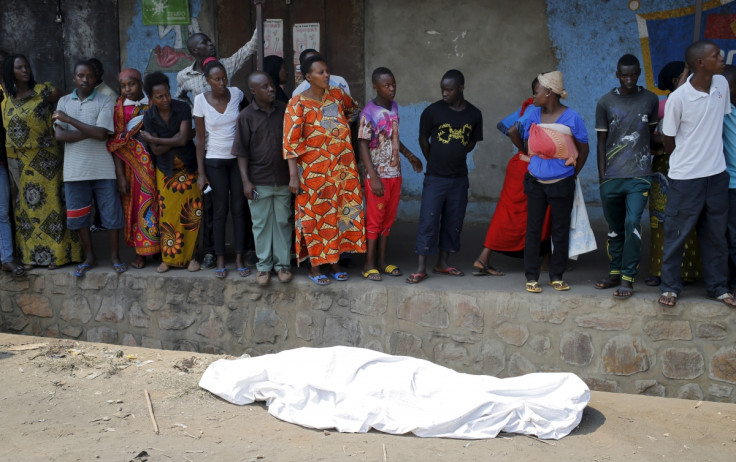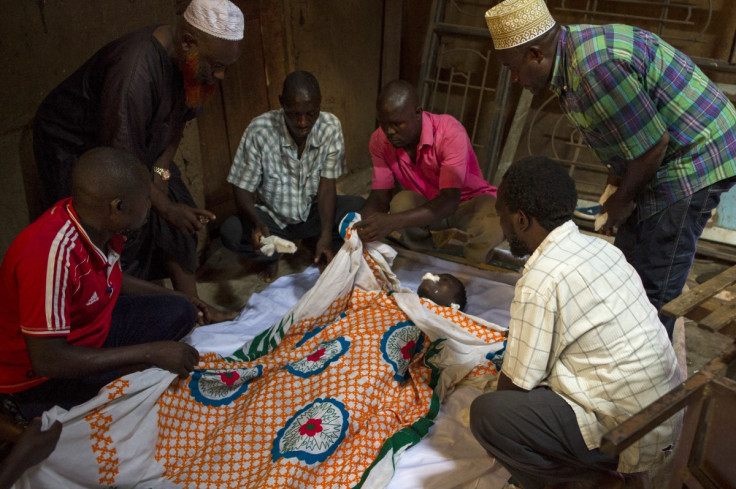Burundi: Civilians frustrated at inaction of international community despite UN resolution

Burundians have expressed their frustration as the United Nations's Human Rights Council (UNHRC) is preparing to approve a new resolution to prevent the deterioration of the human rights situation in Burundi.
The country's current political crisis pits supporters of President Pierre Nkurunziza against opponents, who say his re-election in July for a third term violated the constitution in a nation still reeling from its 1993-2005 civil war that left 300,000 people dead.
The 24th special session of the UNHRC is expected to culminate with the adoption of a draft resolution, which calls for an investigation by a group of experts appointed by the High Commissioner – among other moves.
In the draft proposal, the UNHRC said it was welcoming:
"the efforts of the African Union to, inter alia, appoint human rights observers and military experts, launch a thorough investigation of violations and abuses of human rights" after expressing "its deep concern about the prevailing insecurity and violence in the country and its humanitarian consequences, (...) the human rights violations and abuses committed and its strong condemnation of inflammatory statements made by Burundian political leaders, which have the potential of aggravating the current tensions and creating conditions of violence of untold consequences for Burundi and the region".
The resolution, meanwhile, also made strong references to the 12 November Security Council resolution, in which, the Council "invited the Secretary General to deploy a team to Burundi to coordinate and work with the Government of Burundi, the African Union and other partners".
Rolando Gómez, spokesman for the UN's Human Rights Council told IBTimes UK: "This is a sentiment which has been expressed by many states taking the floor this morning. It is a worrying situation and the discussion taking place at the Human Rights Council in Geneva is appropriate and very much needed."
During the session, the majority of states called for "robust, decisive" action to avert a civil war that could have serious ethnic overtones as well as alarming regional consequences, repeating Zeid Ra'ad Al Hussein, the UN high commissioner for human rights's request, but it is up to the states to adopt the proposals.
'Always investigations, and the same crimes'
Burundians, however, spoke of their frustration with the international community's plans to tackle the political violence that has already left 400 dead since 26 April – and the death toll may be considerably higher, the UN said.
"I'm asking this question: what would be the United Nations or the European Union's reaction if the thousands of Burundians killed were European? Is the judicial equality preached by the United Nations applicable to all humans, or just some?"
"Investigations? Always investigations, and the same crimes: women raped, (people) massacred under children's eyes, robberies, etc. I do not understand why they need to investigate things that are so obvious," Joe, a Bujumbura resident, told IBTimes UK under condition of anonymity.
"I'm asking this question: what would be the United Nations or the European Union's reaction if the thousands of Burundians killed were European? Is the judicial equality preached by the United Nations applicable to all humans, or just some?"
Joe expressed disappointment at the international community's "lack of will to stop these continuous crimes", adding "it is really crucial to save innocents' lives, through direct intervention".
'Put pressure on the military'
A local journalist, also living in the capital, welcomed the resolution, saying it would put pressure on the embattled government, but questioned how it would "stop the violences or Nkurunziza's purges". The reporter claimed the President would "do it more discreetly"

Investigations by the International Criminal Court (CPI) "or even prosecutions or international warrants" would be more effective, he added, claiming that "some people need to know they cannot leave the country, or at least know that even the money that protects them is of no use".
In the journalist's mind, Burundian troops currently posted in Somalia and in the Central African Republic should be send back to Burundi as "the (military) budget remains a way to put pressure on soldiers, who instead of make a stand against the ruling power just wait to go on the mission".
Government to lead its own inquiry
The government, meanwhile, said it would lead investigations into the alleged participation of its security forces in the deadly events of 11 December.
But Burundi's foreign minister, Alain Nyamitwe, estimated that the government could not base its inquiry on reports published by non-governmental organisations such as Amnesty International, arguing that some of its factual information produced is not correct.
Nyamitwe also estimated that it was too early to think about the sending of international troops to Burundi, while significant number of soldiers of the Burundi National Defence Forces are already deployed to the African Union Mission in Somalia (AMISOM).
The minister also deplored the "radical positions" of a number of states sitting on the UN's Security Council, which have urged for the deployment of foreign troops to the country.
Of the 400 dead, up to 68 may have been extra-judicially executed in November, the UNHRC claimed, adding that at least 3,496 people have been arrested in relation to the political crisis. Around 220,000 people are refugees in neighbouring countries, with many others internally displaced.
Human rights defenders and independent journalists have also fled the country and gone into hiding.
© Copyright IBTimes 2025. All rights reserved.






















